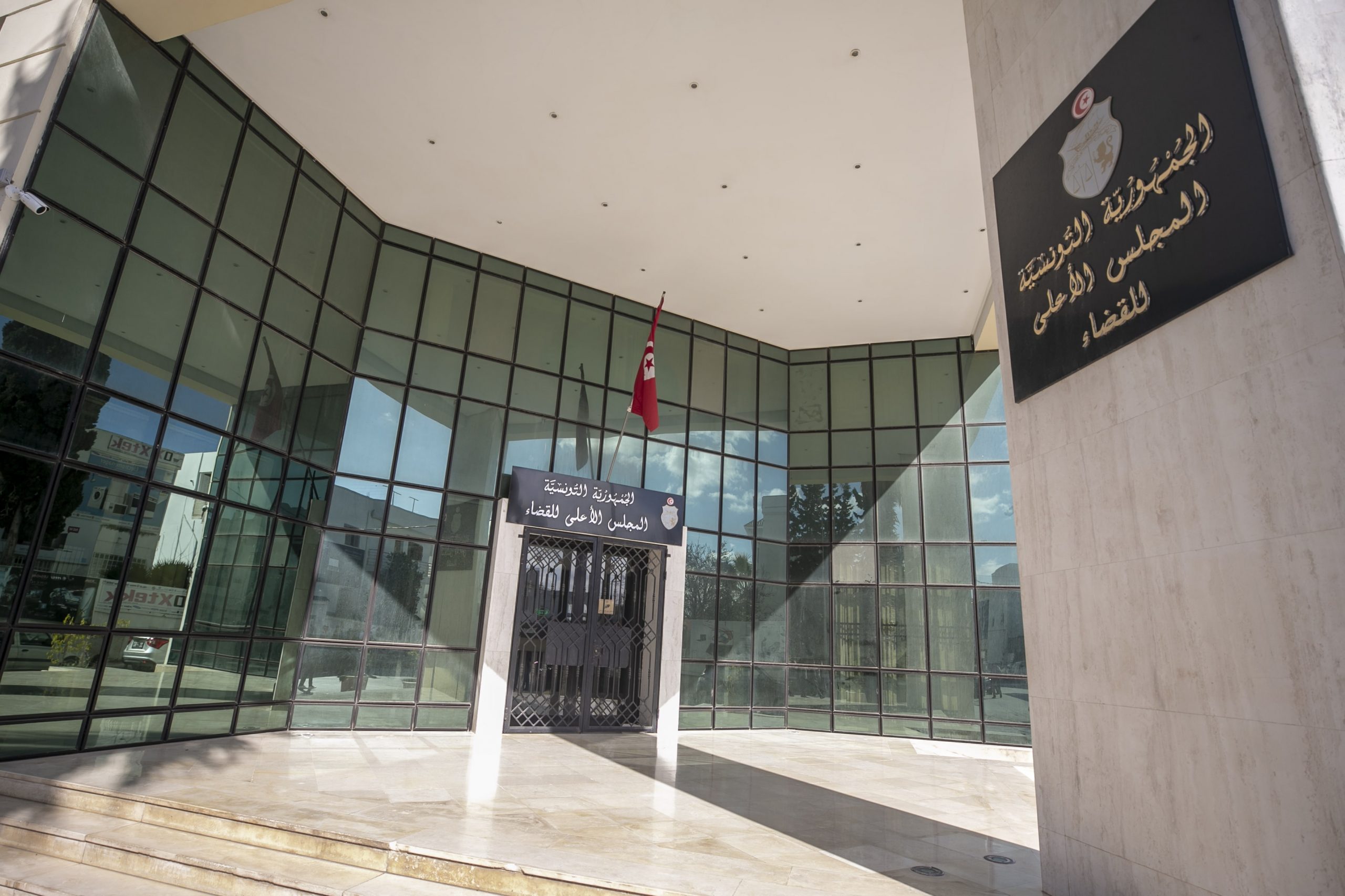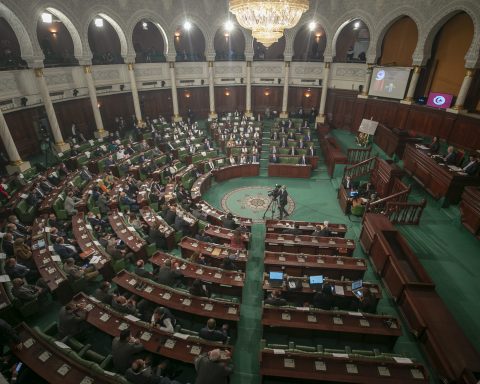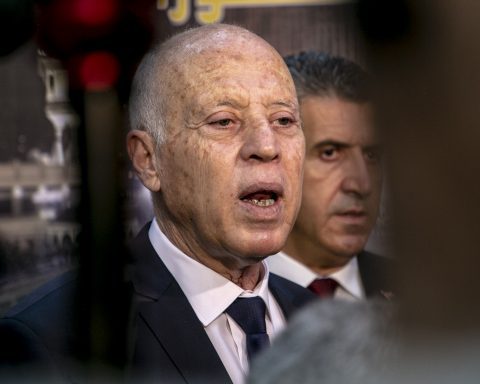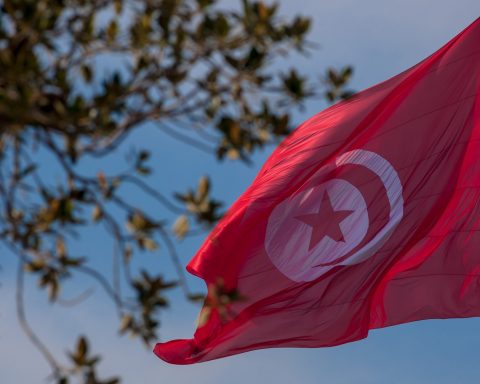Head of the Tunisian Supreme Judicial Council, Yousef Bouzakher, said in a statement to a private radio station that after President Saied announced his intention to dissolve the Council, security forces, including administrative personnel and council members, have blocked entrances to the building since the morning.
Stating that this development is a new stage in the attacks on the Council, Bouzakher said, “These attacks on the Council are attempts to intervene in state institutions and try to seize the judiciary.”
The Tunisian Presidency shared the images of Saied taken during his visit to the Ministry of Interior on Saturday evening.
Saying that he will decide to dissolve the Supreme Judicial Council by issuing a temporary decree at the meeting at the Ministry, Saied said, “From now on, let this Council know that it is history. The Council has become the place where positions are sold. Judges are appointed according to loyalty. Their place is not where they sit now, but where the defendants stand.”
After Saied’s statement that he intends to dissolve the Supreme Judicial Council, it was announced that the abolition decision would not be accepted by the parliament, many political parties, and non-governmental organizations, especially the judiciary boards.
In the statement made by the Supreme Judicial Council, it was expressed that,“There is no legal basis for the dissolution of the Council, which is a constitutional and independent institution. The laws and the Tunisian Constitution lack the mechanism to dissolve the Supreme Judicial Council.”
After the extraordinary decisions announced by President Saied last year in Tunisia, the crises in politics, economy, and judiciary continue to increase.
The Tunisian President announced on January 19 that he had abolished the privileges and financial aids granted to the members of the Supreme Judicial Council. Saied’s decision was considered by many to be the government’s intervention in the judiciary.














